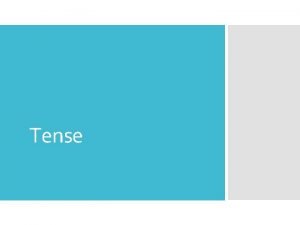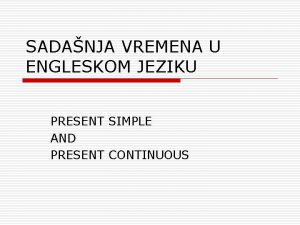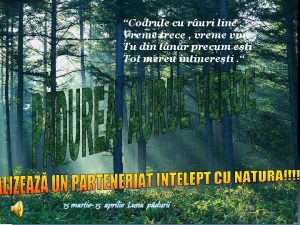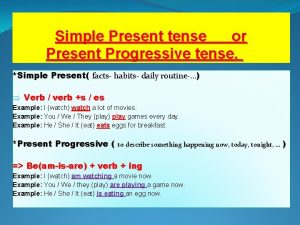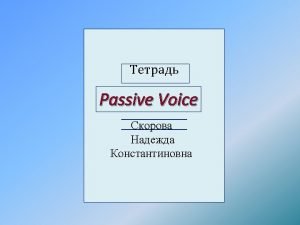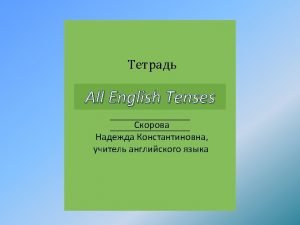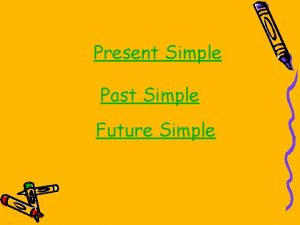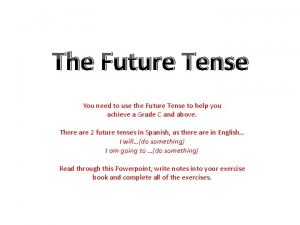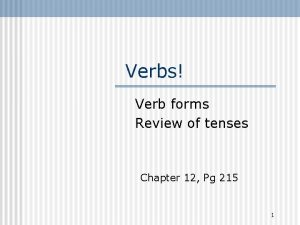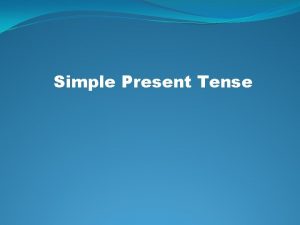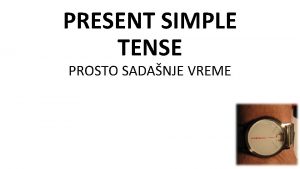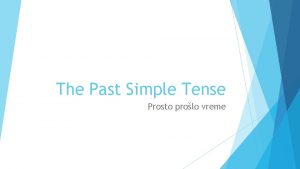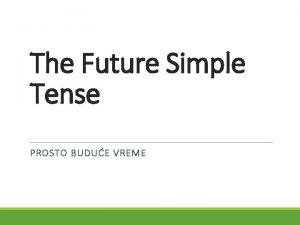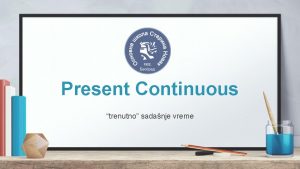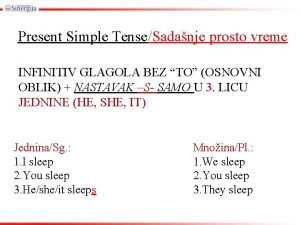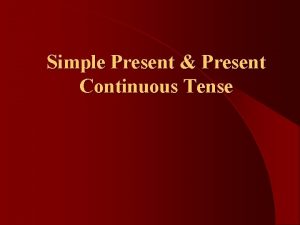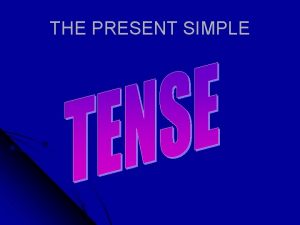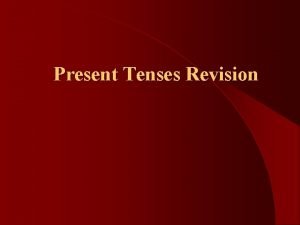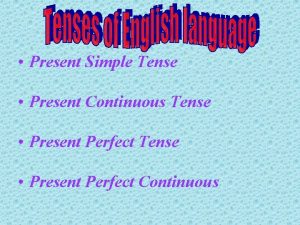The Present Simple Tense Prosto sadanje vreme Potvrdni













- Slides: 13

The Present Simple Tense Prosto sadašnje vreme

Potvrdni oblik singular plural Jednina Množina 1. I work 1. We work 2. You work 3. He works 3. They work She works It works

Upitni oblik Singular Plural Do I work? Do we work? Do you work? Does he work? Do they work? Does she work? Does it work?

Odrični oblik Singular Plural I don’t work We don’t work You don’t work He doesn’t work They don’t work She doesn’t work It doesn’t work

The 3 rd person singular: Most verbs add – s. Većini glagola dodajemo nastavak – s. read → reads

The 3 rd person singular: Verbs add – es when they end in – o, - s, - x, - ch, - sh. Nastavak – es dodajemo glagolima koji se završavaju na – o, - s, - x, - ch, - sh. do → does miss → misses relax → relaxes catch → catches push → pushes

The 3 rd person singular: When there is a consonant before – y change to – ies. Glagoli koji se završavaju na – y ispred koga je suglasnik menjaju y → i i dodaju – es. Ukoliko je ispred – y samoglasnik pravilo ne važi. cry → cries but buy → buys

Upotreba Habitual, permanent or repeated action Radnja koja je uobičajena, stalna ili se ponavlja. I come to class every day. Ja dolazim na čas svaki dan.

Frequency adverbs are often used: always, often, usually, sometimes, rarely, never… Prilozi učestalosti koji se često koriste su: uvek, često, obično, ponekad, retko, nikad. . . I always get up at 8. 00. Ja uvek ustajem u 8. 00. Jim is usually late. Džim obično kasni.

Facts which are true in the present period of time. Činjenice koje su istinite u sadašnjem trenutku. My father works in a bank. Moj otac radi u banci. 60 She speaks French. Ona govori francuski.

Permanent truths Činjenice koje su nepromenjljive. The Earth moves round the Sun. Zemlja se okreće oko sunca. Gases expand when heated. Gasovi se šire kada ih zagrevamo.

Future reference related to timetables, programmes, events in the calendar. Značenje budućnosti u rasporedu časova ili redu vožnje, programima i zakazanim događajima. My train leaves at 6. 30 tomorrow. Moj voz polazi u 6. 30 sutra. The concert begins at 7. 30. Koncert počinje u 7. 30.

In time clauses and conditional sentences U vremenskim i pogodbenim rečenicama. If you go to the party you will see her. Ako odeš na zabavu videćeš je. When you see Jack tomorrow, tell him to call me. Kada vidiš Džeka sutra reci mu da me pozove. Kada budeš videla Džeka sutra reci mu da me pozove. Time clauses: when, as soon as, until … Vremenske rečenice počinju sa: kad, čim, dok. . . Conditional: If, unless. Pogodbene rečenice: ako, ukoliko ne.
 Tense chart for class 5
Tense chart for class 5 Sadasnje prosto vreme engleski
Sadasnje prosto vreme engleski Vreme trece vreme vine
Vreme trece vreme vine Verbs in present continuous
Verbs in present continuous Present continuous tense examples in hindi
Present continuous tense examples in hindi Present tense simple or progressive
Present tense simple or progressive Past continuous present simple
Past continuous present simple Present simple present continuous past simple
Present simple present continuous past simple Present simple present continuous past simple future simple
Present simple present continuous past simple future simple Present simple past simple future simple present continuous
Present simple past simple future simple present continuous Be future tense
Be future tense 10 examples of present perfect continuous tense
10 examples of present perfect continuous tense Present perfect tense vs present perfect continuous tense
Present perfect tense vs present perfect continuous tense Three verb forms
Three verb forms
